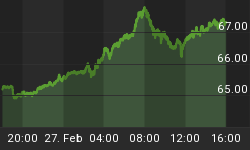Last week I was pleased to see my Republican colleagues take up the cause to fully and completely audit the Federal Reserve by including my language from the Federal Reserve Transparency Act in a Motion to Recommit the financial regulation reform bill. Although this effort was defeated by the Democrat majority, there were many good reasons to support it.
The Federal Reserve Transparency Act would eliminate restrictions on GAO audits of the Federal Reserve and open Fed operations to Congressional oversight. Additionally, audits could include discount window operations, open market operations, and agreements with foreign central banks, such as the ongoing dollar swap operations with European central banks.
Since its inception, the Federal Reserve has always operated in the shadows, without sufficient scrutiny or oversight, while Congress has kept its hands off and its eyes closed. The Federal Reserve has presided over the near-complete destruction of the United States dollar. Since 1913 the dollar has lost over 95% of its purchasing power, aided and abetted by the Federal Reserve's loose monetary policy. The Federal Reserve Transparency Act would achieve much-needed transparency of the Federal Reserve System.
However, House and Senate negotiators failed to include the full language of my legislation in the conference report for the financial reform bill, and the full Congress missed yet another opportunity to demand accountability from the Federal Reserve by defeating the Republicans' motion to recommit. Over 320 members of Congress from both parties cosponsored my original bill, which was incorporated into that motion to recommit. Almost 200 members of Congress who care about Federal Reserve transparency voted for this motion to recommit. Unfortunately, they found themselves in the minority.
Any legitimate objections to the audit proposal were addressed in the language of the motion to recommit. Thus, it is clear that the real reasons for opposing it are unstated and indefensible. The real reasons are that politicians like to spend money far exceeding income and it is convenient to have an enabler of this in the Federal Reserve. The easier it is for the Fed to create money, hidden from public view and accountability, the easier it is for politicians to spend that money and make sure their friends and interests are taken care of through shady political processes.
The broader reasons for supporting this entire financial regulatory reform bill are just as sinister. This is not about cracking down on big banks as some claim. Rather, this is about not wasting a crisis. This is about using a traumatic event to increase government power and control over the economy. If it was really about addressing the causes of this recession, Fannie Mae and Freddie Mac would have been dealt with, or abolished. Failed companies would just fail, rather than being bailed out. Instead, a permanent bailout mechanism is being established. The Fed, and its ability to control interest rates and create cheap money, would be reformed or better yet, abolished. But instead its power is being increased and this Congress refuses to even fully audit it!
So yet again in the midst of a crisis, government insists on acting, and in ways far outside the scope of the Constitution, hoping that the crisis gives them cover. The truth is that in crises is when we need Constitutional limitations the most.















